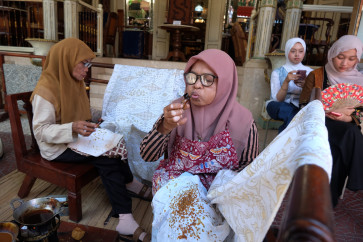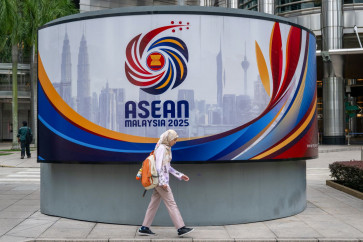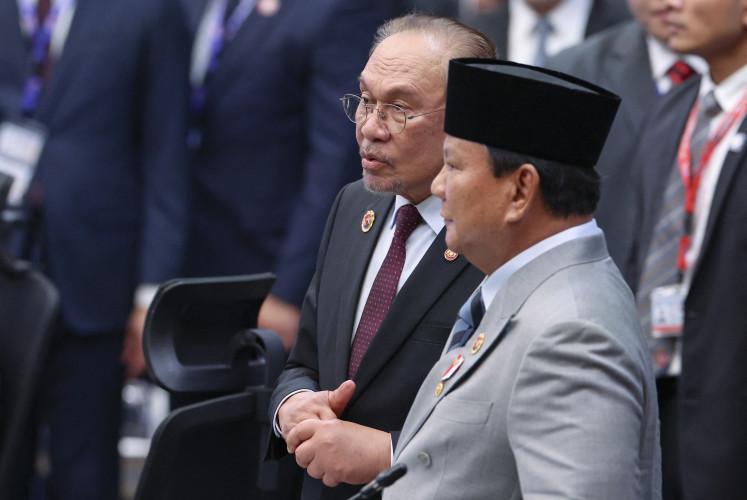Popular Reads
Top Results
Can't find what you're looking for?
View all search resultsPopular Reads
Top Results
Can't find what you're looking for?
View all search resultsLPDP overseas scholarship needs rethinking
The government's Education Endowment Fund (LPDP) sends thousands of the country’s best and brightest students each year to leading universities abroad, but is the national scholarship program benefiting our younger generation optimally, both globally and locally?
Change text size
Gift Premium Articles
to Anyone
T
he demographic bonus has been touted as a positive factor in contributing to our nation’s economic development. All media and talks cite it as a great opportunity for our nation, as the high rate of the young workforce will help boost economic productivity.
However, this narrative about the positive outcome of the demographic dividend is in dire need of a rethink, especially after seeing how the COVID-19 pandemic has altered various socioeconomic dimensions of our younger generation, including those studying abroad.
Through the Education Endowment Fund (LPDP), the government aims to leverage the demographic bonus by giving selected candidates a world-class education at various top universities. Although the intention seems good, there are critical elements that need to be reconsidered.
First, the universities included as an option for students are selected strictly based on the institution’s ranking. The rationale for this is, of course, to ensure that our younger generation is getting the best education possible.
At times, however, the ambitious mission to put our best students in elite postgraduate programs often favors privileged students. To apply to Oxbridge and Ivy League institutions, for instance, a candidate should have an excellent GPA, stellar career credentials and high scores on various aptitude tests. There needs to be acknowledgement of the various glass ceilings that do not allow many of our undergraduate students to achieve this.
For example, undergraduate tuitions are getting increasingly expensive, especially if one wants to go to a good university. Apart from that, not all undergraduate students might have the opportunity to take part in various extracurricular activities, even though this is an integral part of the selection criteria for both scholarship and university candidates.
The pandemic has especially elevated the barriers for underprivileged populations in pursuing a tertiary education. It must then seem almost impossible for students from less-privileged backgrounds to obtain a postgraduate degree at a world-class institution.
Second, there is the issue of whether the investments made for selected students to pursue further education at world-class universities is really all that worth it. One thing is clear: investing in human capital through quality education is crucial. However, what does it mean to have a quality education?
Is it that going to a prestigious university abroad is enough to build and shape the robust competencies needed to shatter the old, outdated practices still looming at many Indonesian institutions? Gaining knowledge from completing a degree is one thing, but we all know it takes other skill dimensions to apply the knowledge gained from university studies as relevant action in practice.
The pandemic has forced many parts of the world to go into full or partial lockdown, especially the destination countries of the approved universities on the LPDP scholarship list. Many of the classes are then being delivered online.
There are, of course, major setbacks that overseas students face when studying online. Indonesian students going abroad to study might miss the opportunity to take part in various in-person activities that allow them to interact and socialize with a wider network of students.
These activities are important to shape multidimensional thinking by exposing them to cultural differences that will enhance their empathy and open-mindedness, which we all know are lacking these days. Even so, despite these obvious disadvantages, many students studying abroad in a pandemic setting acquire their degrees anyway.
What happens, then, is that these foreign university graduates end up flaunting their prestigious degrees and might perceive that they are “much” more qualified than local university graduates, but are they?
Our national scholarship programs need a rethink, especially the part where it binds graduates to a contract, obliging them to return to Indonesia straight after they complete their studies. Scholarship awardees are only able to secure their diploma and educational attainment without gaining further work experience that is critical to creating competitive global citizens.
It is a shame, as the opportunity to study abroad might also open more opportunities to form intangible benefits, such as access to a network of experts, collaboration opportunities through relationship building, and experiencing best practices by working at the very best institutions in the world. In this way, graduates become more rounded, robust and more importantly, can bring about real change to Indonesian institutions.
Following these critical issues, the contextually sensitive approaches toward our demography should become the key features of recovery in post-pandemic Indonesia. For the scholarship program, it is more important to create a safety net for poor undergraduate students at top Indonesian universities. The focus on undergraduate education will be beneficial in tackling the issue of access to the increasingly elitist Indonesian universities, as reflected in the ambition to gain an international reputation and the rising tuition fees.
At the same time, sending top candidates abroad for postgraduate studies will be fully beneficial if they also have the opportunity to work globally in their field of study. By sending top candidates abroad to work professionally, we could broaden the network of knowledge and strengthen the culture of innovation. It will also open more opportunities for local graduates to secure jobs in Indonesia, particularly in the prolonged recovery period after the pandemic.
***
Asep Muizudin Muhamad Darmini is a communication lecturer at Bina Nusantara University, Jakarta, and holds a PhD in media and communication studies from the University of Warwick’s Centre for Cultural and Media Policy Studies. Dwitya Kirana Amry is a PhD researcher in innovation and entrepreneurship, an associate tutor at the University of Warwick’s Warwick Manufacturing Group (WMG) and an economics and business lecturer at National University, Jakarta.










